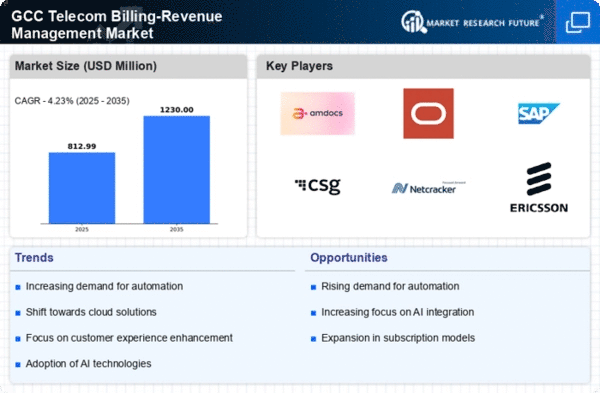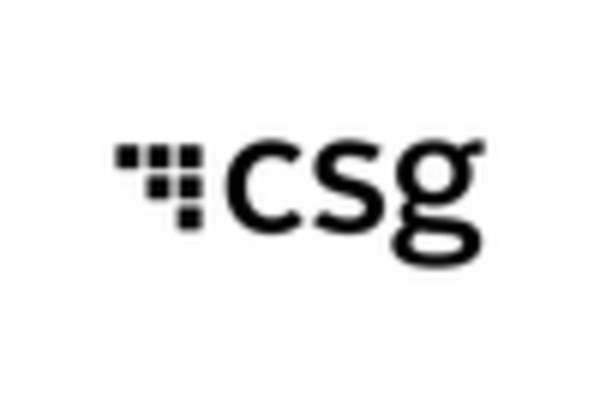Integration of IoT Services
The integration of Internet of Things (IoT) services is emerging as a key driver in the telecom billing-revenue-management market. As IoT devices proliferate across various sectors, telecom operators are required to develop billing systems that can handle the complexities associated with these services. This includes managing multiple device connections and varying pricing models. The GCC region is witnessing a rapid increase in IoT adoption, with projections suggesting a growth rate of over 25% in the next few years. Consequently, telecom companies are investing in scalable billing solutions that can accommodate the unique demands of IoT services, thereby enhancing their revenue management capabilities.
Adoption of Advanced Analytics
The telecom billing-revenue-management market is witnessing a notable shift towards the adoption of advanced analytics tools. Telecom operators are increasingly leveraging data analytics to gain insights into customer behavior and preferences. This trend is driven by the need to optimize pricing strategies and enhance customer retention. Reports indicate that companies utilizing analytics in their billing processes have seen a revenue increase of approximately 15% due to improved decision-making capabilities. By harnessing data, telecom providers can tailor their offerings, thereby enhancing customer satisfaction and loyalty, which is crucial in the competitive landscape of the telecom billing-revenue-management market.
Increasing Demand for Digital Services
The telecom billing-revenue-management market is experiencing a surge in demand for digital services across the GCC region. As consumers increasingly rely on mobile and internet services for daily activities, telecom operators are compelled to enhance their billing systems to accommodate diverse service offerings. This shift is reflected in the growing number of digital subscriptions, which has reportedly increased by over 30% in the last year alone. Consequently, telecom companies are investing in advanced billing solutions to ensure accurate revenue capture and customer satisfaction. The need for real-time billing and flexible payment options is becoming paramount, driving innovation within the telecom billing-revenue-management market.
Shift Towards Subscription-Based Models
The telecom billing-revenue-management market is experiencing a paradigm shift towards subscription-based business models. This trend is particularly evident in the GCC, where consumers are increasingly favoring predictable pricing structures over traditional pay-per-use models. As a result, telecom operators are re-evaluating their billing strategies to support subscription services effectively. This shift is expected to drive a substantial increase in recurring revenue streams, with estimates suggesting a potential growth of 20% in subscription revenues over the next few years. By adapting their billing systems to accommodate this trend, telecom companies can enhance customer loyalty and streamline their revenue management processes.
Regulatory Changes and Compliance Requirements
The telecom billing-revenue-management market is significantly influenced by evolving regulatory frameworks within the GCC. Governments are implementing stricter compliance measures to ensure transparency and protect consumer rights. For instance, recent regulations mandate that telecom operators provide detailed billing statements and clear information on service charges. This has led to an increased focus on compliance-driven billing solutions, which can adapt to changing legal requirements. As a result, telecom companies are investing in robust revenue management systems that not only streamline billing processes but also ensure adherence to regulatory standards, thereby enhancing their operational efficiency.
















